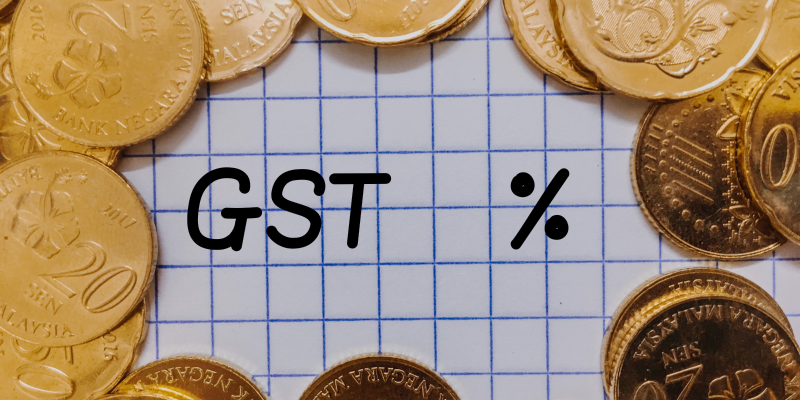
Confused by Singapore GST? You're not alone. The complexities of this tax can be overwhelming, but we're about to simplify it with our expertise in providing GST consultancy services in Singapore.
Our comprehensive guide will break down the Singapore GST for you, offering a clear understanding of its impact on businesses and the rules for compliance. You'll learn about the details of taxable supplies and the exemptions that may apply to you. Whether you're dealing with standard-rated or zero-rated supplies or need information on small business exemptions, don't worry; you're about to gain knowledge. Let's explore the world of Singapore GST.
Understanding Singapore GST
Singapore Goods and Services Tax (GST) is a crucial aspect for businesses operating in the country. This tax system comes with its own set of unique regulations and exemptions that require your understanding. Let's start with the basics of Singapore GST and its operation.
What is Singapore GST?
In Singapore, the Goods and Services Tax (GST) acts as a consumption tax. It applies to the supply and import of goods and services. In other countries, people know it as the Value Added Tax. Currently, it stands at 8% and forms part of the selling price of goods and services that GST-registered businesses offer.
If you operate a business in Singapore, assessing your need to register for GST becomes critical. GST operates as a self-assessed tax. You must register if your business income crosses the S$1 million (US$741,900) threshold during a 12-month period that ends with the calendar year. The same applies if you expect to exceed this amount in the next 12 months.
Singapore implemented GST on April 1, 1994. This implementation allowed the country to maintain its income tax rates at a relatively low level. As a tax on consumption rather than income, GST naturally encourages savings and investments.
After understanding what Singapore GST is, it's logical to become curious about its workings.
How Does Singapore GST Work?
In Singapore, the Goods and Services Tax (GST) operates on a system of filing and payment deadlines. This typically occurs one month after the GST accounting period concludes. If your company employs a direct debit plan for GST payments, the system executes the deductions on the 15th day of the month following the payment due date.
Let's clarify the terms 'output tax' and 'input tax' in the context of Singapore GST. The 'output tax' refers to the GST you impose on your customers for goods and services. Conversely, the 'input tax' signifies the GST on your business purchases and expenses, including the import of goods. You remit the difference between these two as the net GST to the government.
Therefore, if your company has GST registration, you have a responsibility to collect GST from your customers. For example, if you price a service at SG$100 to a customer in Singapore, you should invoice the customer SG$108 (SG$100 for the service plus 8% GST). You must then remit this invoiced GST amount, which you gather from the customer on behalf of the tax authorities, to the Singapore tax department every quarter via Singapore GST tax filing. Remember, GST charges apply to the end consumer, so it does not typically become a cost to your company. In essence, businesses serve as collecting agents for the Singapore tax department.
With a basic understanding of how GST operates in Singapore, let's move to the compliance regulations businesses must follow.
Compliance Regulations for Singapore GST
Understanding the intricate regulations of Singapore GST can seem challenging. However, there's no need to worry! This guide is here to assist. You'll find clear, straightforward directions on essential compliance, such as GST registration and return filing. Let's begin!
Registration for Singapore GST
Grasping the GST registration regulations in Singapore is vital for both local and overseas businesses. If you're an overseas business selling taxable goods in Singapore, you might need to register for GST. This rule targets overseas suppliers and e-marketplace operators providing significant Business-to-Consumer services to local non-GST registered customers. If your worldwide revenues exceed SGD 1 million and the value of digital services to local customers surpasses SGD 100,000, GST registration becomes necessary. Even if your taxable turnover doesn't go beyond $1 million, you can opt to register for GST voluntarily after thoughtful consideration.
To register for GST in Singapore, you must apply with the Inland Revenue Authority of Singapore (IRAS). Here are the steps to follow:
- Submit an online application via the myTax Portal using your company's CorpPass, a corporate digital identity for businesses.
- Attach supporting documents like your company's Accounting and Corporate Regulatory Authority (ACRA) Business Profile and Certificate of Incorporation.
Companies incorporated in Singapore don't automatically have the right to charge GST. If your company fulfils certain conditions, you should apply to IRAS to become a GST-registered company. Once you voluntarily register, you should stay registered for at least two years, comply with GST regulations, file the GST return every quarter, and maintain all records for at least five years. This rule applies even after your business has stopped and deregistered from GST. You might also need to meet additional conditions set by the tax authority.
Starting from 1 January 2023, this rule will broaden to include non-digital services, as long as they are "remote services" supplied from overseas. From this date, overseas suppliers, e-marketplace operators, and redeliverers providing significant "low-value goods" (not exceeding SGD 400 in value) to local customers will also have to register for GST.
With a clear understanding of the GST registration process, we can now move on to the complexities of filing GST returns.
Filing GST Returns
As a business in Singapore, you hold the responsibility of filing your GST returns electronically. You must submit these returns to IRAS within a month after each accounting period ends. This submission should report both your output tax and input tax.
Submitting GST returns on time and accurately is crucial to avoid penalties. After all, when it comes to Singapore GST, meeting deadlines is of utmost importance.
Another key aspect of GST compliance is understanding what supplies are taxable under Singapore GST, which we will discuss next.
Taxable Supplies Under Singapore GST
Singapore's Goods and Services Tax (GST) complexities can pose a challenge for businesses. However, understanding the concept of taxable supplies and their classification is essential. In the upcoming sections, we will discuss standard-rated supplies and zero-rated supplies. This understanding will aid your GST computations and enable you to identify supplies exempt from GST. Let's further explore these concepts.
Standard-Rated Supplies
In the GST system of Singapore, standard-rated supplies generally encompass the majority of local transactions involving goods and services. Grasping the concept of standard-rated supplies aids in your accurate computation of Singapore GST. For example, the retail shop sale of a television set is a part of standard-rated supplies. Now that you have a grasp on standard-rated supplies let's move on to another category: zero-rated supplies.
Zero-Rated Supplies
In the Singapore GST system, zero-rated supplies refer to exports of goods and international services. These are subject to a 0% GST rate. Such zero-rated supplies include media sales that directly benefit either an individual abroad or a GST-registered person in Singapore.
The GST Comptroller, the organisation responsible for ensuring accurate financial reporting, considers the contractual client the sole recipient of the services. This principle applies when the service agreement between the media supplier and their contractual client doesn't require the services to be provided to another party, and the supplier only follows instructions from the contractual client for the service.
If you're a business registered for GST with IRAS and you provide zero-rated supplies, you're in a favourable position! You can claim the input tax paid on purchases.
Here's an intriguing point - a modification regarding the sale of imported low-value goods is forthcoming. For example, imagine an overseas online merchant selling a tennis racquet to a customer in Singapore for $330, not including freight and insurance. Starting from 1 Jan 2023, this will be considered as zero-rated. The following are also considered as zero-rated:
- Export of goods
- Imported services such as procurement of marketing services from an overseas service provider
- Services classified as international services.
Exemptions From Singapore GST
Grasping Singapore's GST regulations, it's essential to identify the existing exemptions. Your business might handle goods and services that are exempt, or your small enterprise may meet the criteria for certain exemptions. Let's look into these areas more.
Exempted Goods and Services
Singapore's Goods and Services Tax (GST) applies to a broad spectrum of goods and services. This includes low-value imported items and non-digital services. For instance, if you import goods worth up to S$400 (approximately US$301) via air or post or offer online training where the client is not present physically, you would have to pay GST.
However, Singapore has certain goods and services that do not fall under the GST umbrella. These are known as exempt supplies. The exemptions are divided into two categories: the sale and lease of residential land and financial services. Remember, claiming the input tax incurred when making these exempt supplies is not permissible.
To make these exemptions clearer, they encompass:
- Most financial services provided
- Supply of digital payment tokens
- Sale and lease of residential properties
- Importation and local supply of investment precious metals
The Singapore GST system, though extensive, does offer exemptions for specific categories. These exemptions can significantly influence your business operations. In the next section, we will discuss the exemption available for small businesses and the criteria for this exemption.
Exemption for Small Businesses
Small businesses in Singapore can enjoy certain GST exemptions. For example, if your annual turnover falls below SGD 1 million, there's no requirement for GST registration. However, it's important to note that foreign digital service providers must still register for GST if they meet specific conditions.
The Government of Singapore has created a special provision for small businesses - the Cash Accounting Scheme. Understanding these Singapore GST exemptions in-depth can bring significant benefits to your business. So, it's vital to grasp these regulations and how they apply to your business operations.
Wrapping It Up
We've come to the end of our journey through Singapore GST. You've journeyed through the landscape, understood the fundamental laws, and tackled the complexities. You've become familiar with the rules of compliance, the details of taxable supplies, and the possible exemptions that could benefit your business. A firm understanding of these elements can greatly impact your business operations. If you need more clarity or guidance, don't hesitate to invest in Fortius Consulting, the leading Business Consulting & CFO services in Singapore. Our expert team can provide invaluable support and insights to help you navigate the intricate world of Singapore's GST and optimize your financial strategies.
As Benjamin Franklin wisely said, "An investment in knowledge pays the best interest." Continue your learning journey and make informed decisions about Singapore GST. Your journey of discovery doesn't end here. Keep learning, keep expanding your knowledge.
Frequently Asked Questions
What items are exempt from GST in Singapore?
Singapore offers Goods and Services Tax (GST) exemptions on specific items. Financial services, purchase and rental of residential properties, import and local supply of precious metals for investment, and digital payment tokens provision fall under these exemptions. However, these exemptions might undergo changes, so keeping up-to-date with the latest rules and regulations is advisable.
Are financial services exempt from GST in Singapore?
Singapore usually exempts financial services from the Goods and Services Tax (GST). So, financial institutions don't add GST to their services, nor can they claim GST on expenses linked to these exempt services. Yet, exceptions and specific rules exist, so reviewing the latest regulations is always a good idea.
Are education services exempt from GST in Singapore?
In Singapore, educational institutions typically don't charge Goods and Services Tax (GST) for their services. But it's crucial to remember that exceptions and specific rules may apply. So, it's always a good idea to keep up-to-date with the most recent regulations.
When do you need to charge GST in Singapore?
In Singapore, if a business has registered for Goods and Services Tax (GST), it has to include this tax in the price of every product and service it sells within the country. The GST rate currently stands at 8%. But there are exceptions. These include exported goods, internationally provided services, and certain exempt supplies. Starting from January 1, 2019, a GST-registered business selling certain goods locally to another GST-registered customer must apply customer accounting if the goods' value (excluding GST) exceeds $10,000.
How do I register for GST in Singapore?
Looking to register for GST in Singapore? Follow this simple guide. Start by choosing between compulsory or voluntary GST registration. With that decision in hand, you can then take the e-learning course offered by IRAS.
Course completion leads to the next step - submitting your GST registration application online through the mytax.iras.gov.sg portal. Remember, Corppass authorisation is a must to use the GST registration digital service. Don't forget to attach the necessary supporting documents with your application.
Voluntary GST registration involves an extra step. You have to sign up for GIRO for your GST payment and refund. Keep in mind this guide is general, and the actual process might slightly vary.
How do I file GST returns in Singapore?
In Singapore, submitting your GST returns involves a few straightforward steps. You begin by logging into the myTax Portal. Once logged in, your task is to fill out the GST F5 Return form, which consists of fifteen sections. Remember, all the figures you report in the GST Return must be in Singapore Currency. If your transactions involve a foreign currency, refer to the guidelines on reporting them in Singapore currency. Even without any transactions during the stated accounting period, you still need to e-file a nil return, meaning you enter '0' in all boxes.





